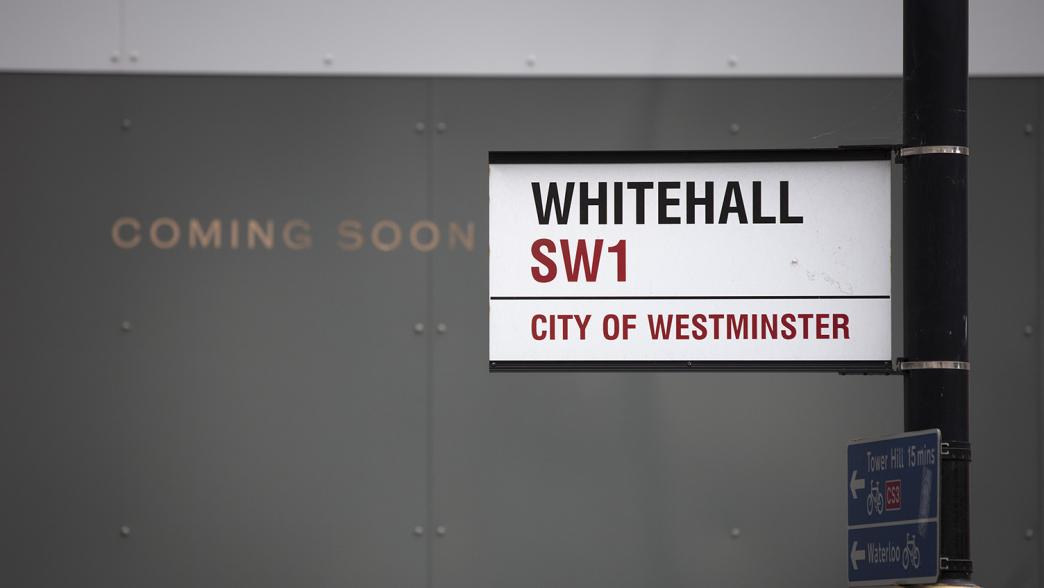Whitehall Monitor 2024
IfG's annual Whitehall stocktake: Next government must launch most fundamental civil service reform in decades

High turnover, real-terms pay cuts and low morale undermine government effectiveness, finds the IfG’s annual data-driven stocktake of the size, shape and performance of the civil service.
Published today, Whitehall Monitor 2024 examines how the civil service performed in 2023 and sets out how it should change this year and in the future. Whoever wins the next election, a stable government with a full parliamentary term must not waste a critical opportunity to fix Whitehall’s deep-rooted issues if it wants to deliver its priorities and tackle the intractable policy challenges facing the UK.
The end of 2022’s political tumult eased pressure on the civil service, but despite impressive progress in some areas, like relocating civil servants out of London, 2023 laid bare long-standing problems: real-term pay cuts hindering recruitment and retention; high turnover harming institutional memory; morale continuing to fall.
Rishi Sunak u-turned on civil service cuts, supporting Jeremy Hunt’s irrational blunt headcount cut target to return the civil service to pre-pandemic levels. This would require cutting more than 70,000 roles. The new IfG report says these plans need to be brought back to reality and the civil service needs proper workforce planning.
Key analysis in the report includes:
- The civil service grew by 3.2% over the last year, reaching 496,150 FTE at the latest count. 93% of this growth was in the Home Office and MoJ, reflecting the need to staff frontline roles such as prison officers and asylum caseworkers. This makes Jeremy Hunt’s irrational headcount target even harder to achieve.
- 11.9% of civil servants either moved departments or left the service last year.
- Since 2010, officials have seen real-terms pay cuts of between 12 and 26% for different grades since 2010. More staff are looking to leave the civil service, driven by low pay.
- Civil service morale declined for the second year running, with less than one third – a nine percentage point drop - of the workforce satisfied with pay.
- Holding down civil service pay may not have saved the government money in the long-term, as it has contributed to ‘grade inflation’ that has swollen the senior ranks.
- Whitehall spending on private sector consultancy has increased by 40% in real terms since 2018/19, while spend on temporary labour has grown by 29% in real terms.
- The civil service is becoming more representative of the UK, with the proportion of senior officials who are female for the first time matching the economically active population.
Key recommendations in the report include:
- More effective planning of the civil service workforce to improve efficiency and the ability to recruit and retain top talent, including a combination of higher and more flexible pay to help reduce churn.
- Resetting civil servants’ relationships with ministers to strengthen relationships and accountability within government, including by putting the civil service on a new, firmer statutory footing.
- Making Whitehall policy making more long-term, open, cross-cutting and imaginative, including by introducing senior specialist roles, without management responsibilities, in policy areas across government.
- Accelerating civil service efforts to keep up with the digital and AI revolution, including the overhaul of legacy IT; safeguarding digital experts from any headcount cuts.
- Learning from the Covid inquiry to bring in urgent improvements to the structures and processes which keep the UK resilient and prepared for crises of the future.
Jack Worlidge, report author and senior researcher and the Institute for Government, said:
“The civil service made progress in several areas last year – efforts to relocate officials out of London are going well, while its ranks are becoming increasingly reflective of the general population. But 2023 was a missed opportunity to address some of the deep-rooted problems plaguing Whitehall. If the next government wants to deliver its priorities, it has no choice but to embark on the most fundamental reform of the civil service in decades.”
- Keywords
- Civil servants Civil service reform Government reform Machinery of government Government transparency Diversity and inclusion Data and digital Public sector Public spending Arm's-length bodies Infrastructure
- Political party
- Conservative
- Position
- Prime minister Cabinet secretary
- Administration
- Sunak government
- Public figures
- Rishi Sunak Simon Case
- Tracker
- Whitehall Monitor
- Publisher
- Institute for Government